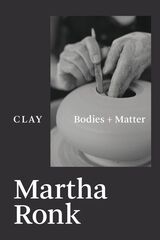6 start with R start with R
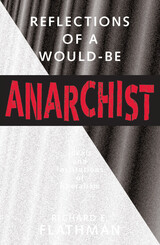

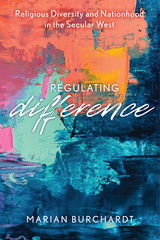
Transnational migration has contributed to the rise of religious diversity and has led to profound changes in the religious make-up of society across the Western world. As a result, societies and nation-states have faced the challenge of crafting ways to bring new religious communities into existing institutions and the legal frameworks. Regulating Difference explores how the state regulates religious diversity and examines the processes whereby religious diversity and expression becomes part of administrative landscapes of nation-states and people’s everyday lives. Arguing that concepts of nationhood are key to understanding the governance of religious diversity, Regulating Difference employs a transatlantic comparison of the Spanish region of Catalonia and the Canadian province of Quebec to show how processes of nation-building, religious heritage-making and the mobilization of divergent interpretations of secularism are co-implicated in shaping religious diversity. It argues that religious diversity has become central for governing national and urban spaces.
This book is also freely available online as an open access digital edition.

Bhikhu Parekh argues for a pluralist perspective on cultural diversity. Writing from both within the liberal tradition and outside of it as a critic, he challenges what he calls the "moral monism" of much of traditional moral philosophy, including contemporary liberalism--its tendency to assert that only one way of life or set of values is worthwhile and to dismiss the rest as misguided or false. He defends his pluralist perspective both at the level of theory and in subtle nuanced analyses of recent controversies. Thus, he offers careful and clear accounts of why cultural differences should be respected and publicly affirmed, why the separation of church and state cannot be used to justify the separation of religion and politics, and why the initial critique of Salman Rushdie (before a Fatwa threatened his life) deserved more serious attention than it received.
Rejecting naturalism, which posits that humans have a relatively fixed nature and that culture is an incidental, and "culturalism," which posits that they are socially and culturally constructed with only a minimal set of features in common, he argues for a dialogic interplay between human commonalities and cultural differences. This will allow, Parekh argues, genuinely balanced and thoughtful compromises on even the most controversial cultural issues in the new multicultural world in which we live.
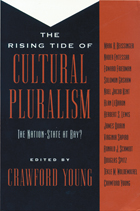
Crawford Young opens with an overview of the dramatic rise in the political significance of cultural pluralism and of scholars’ changing understanding of what drives and shapes ethnic identification. Mark Beissinger brilliantly explains the demise of the last great empire-state, the USSR, while Edward Friedman notes growing challenges to the apparent cultural homogeneity of China. Nader Entessar suggests intriguing contrasts in Azeri identity politics in Iran and the ex-USSR. Ronald Schmidt and Noel Kent explore the language and racial dimensions of the rising multicultural currents in the United States. Douglas Spitz shows the extent of the decline of the old secular vision of India of the independence generation; Alan LeBaron traces the recent emergence of an assertive Mayan identity among a submerged populace in Guatemala, long thought to be destined for Ladinoization. A case study of the diversity and uncertain future of Ethiopia dramatically emerges from four contrasting contributions: Tekle Woldemikael looks at the potential cultural tensions in Eritrea, Solomon Gashaw offers a central Ethiopian nationalist perspective, Herbert Lewis reflects the perspectives of a restless and disaffected periphery, and James Quirin provides an arresting explanation of the construction of identity amongst the Beta Israel (Ethiopian Jews). Virginia Sapiro steps back from specific regions, offering an original analysis of the interaction between cultural pluralism and gender.
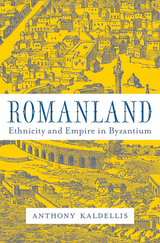
A leading historian argues that in the empire we know as Byzantium, the Greek-speaking population was actually Roman, and scholars have deliberately mislabeled their ethnicity for the past two centuries for political reasons.
Was there ever such a thing as Byzantium? Certainly no emperor ever called himself “Byzantine.” And while the identities of minorities in the eastern empire are clear—contemporaries speak of Slavs, Bulgarians, Armenians, Jews, and Muslims—that of the ruling majority remains obscured behind a name made up by later generations.
Historical evidence tells us unequivocally that Byzantium’s ethnic majority, no less than the ruler of Constantinople, would have identified as Roman. It was an identity so strong in the eastern empire that even the conquering Ottomans would eventually adopt it. But Western scholarship has a long tradition of denying the Romanness of Byzantium. In Romanland, Anthony Kaldellis investigates why and argues that it is time for the Romanness of these so-called Byzantines to be taken seriously.
In the Middle Ages, he explains, people of the eastern empire were labeled “Greeks,” and by the nineteenth century they were shorn of their distorted Greekness and became “Byzantine.” Only when we understand that the Greek-speaking population of Byzantium was actually Roman will we fully appreciate the nature of Roman ethnic identity. We will also better understand the processes of assimilation that led to the absorption of foreign and minority groups into the dominant ethnic group, the Romans who presided over the vast multiethnic empire of the east.
READERS
Browse our collection.
PUBLISHERS
See BiblioVault's publisher services.
STUDENT SERVICES
Files for college accessibility offices.
UChicago Accessibility Resources
home | accessibility | search | about | contact us
BiblioVault ® 2001 - 2025
The University of Chicago Press






